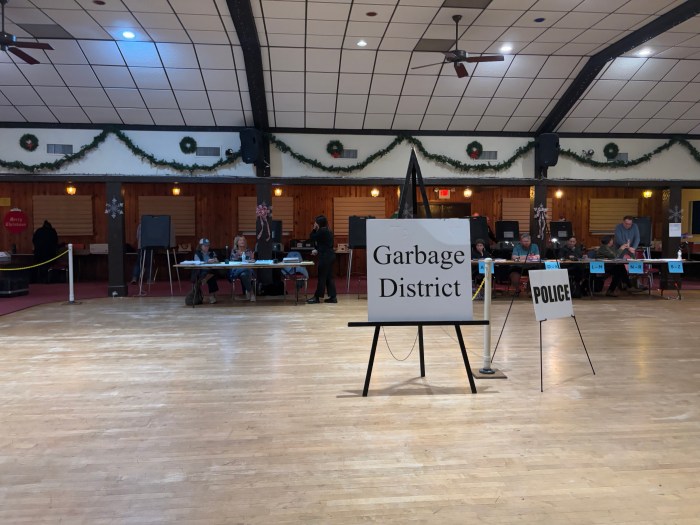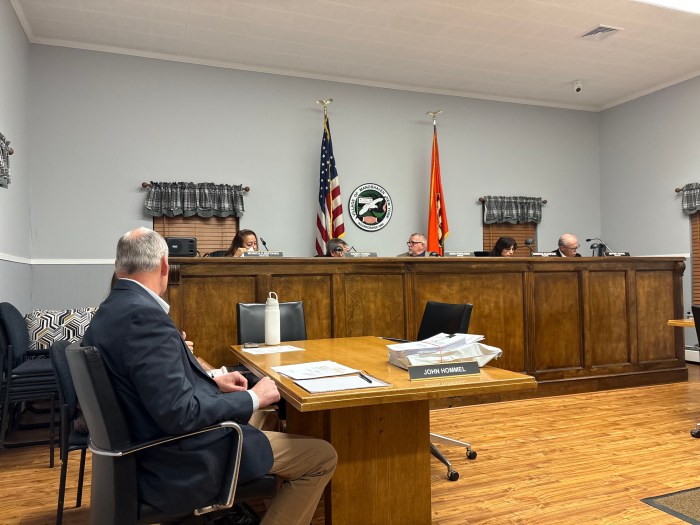North Hempstead Town Supervisor Judi Bosworth and the Town Board would like to remind residents how to prevent and reduce stormwater pollution, by providing some helpful tips. The Town also produced a public service announcement using fictional Storm Water Police to educate residents, see https://www.youtube.com/watch?v=ZZ_jt1_BBKo&t=11s
Stormwater is the result of the water from rain or melting snow that flows into drainage infrastructure, like storm drains and catch basins; this untreated water does not absorb into the ground, but instead migrates into our local waterways and streams. Untreated stormwater can carry debris and pollutants which can lead to the destruction of aquatic life and habitats and even impact the health of our drinking water.
“We want to make sure our residents are aware of what causes stormwater pollution and ways they can do their part to reduce it,” said Bosworth. “Simple tips such as picking up after your pet’s waste and keeping debris out of our storm drains are key to keeping our stormwater runoff clean of pollutants.”
The Town offers classes to residents in building rain gardens, gardening with native plants, composting and using rain barrels to help reduce stormwater pollution. Information is available at http://www.northhempstead.com/Composting-Rain-Barrels-and-Gardens
Residential Stormwater Tips Include:
- Reduce stormwater pollution by taking your car to a car wash instead of washing it at home.
- Pick up after your dogs and properly dispose of pet waste; it should always be flushed, or wrapped and disposed of in garbage.
- Dispose of household hazardous waste such as paints and fertilizers at one of the Town’s S.T.O.P. (Stop Throwing Out Pollutant) events.
- When repairing your vehicle be sure to do so in a careful manner, and prevent pollutants such as oil and other automotive chemicals from staining your driveway or running into the street.
- Minimize the use of synthetic pesticides and fertilizers whenever possible. Be sure to follow the instructions on the packages to prevent excess usage, and consider replacing your turf yard with native plants (which require minimal chemicals and watering). Also consider purchasing a composter through the Town’s composting cooperative to create rich organic fertilizer for your garden.
- Never litter! All man-made garbage, especially cigarette butts, creates a risk to wildlife and leaches chemicals into the environment. Do not sweep garbage into storm drains as it also blocks the drains and can create flood risks.
- Water should be kept onsite and an effort to reduce impervious surfaces should be made whenever possible. Consider making a rain garden on your property, so that stormwater can filter slowly into the ground instead of rushing into the street. Rain gardens also provide food and habitat for wildlife, and help recharge and purify our drinking water supplies.
Commercial and Institution Stormwater Tips Include:
- Minimize the use of pesticides, herbicides and fertilizers whenever possible. Be sure to follow the instructions on the packages to prevent excess usage.
- When cleaning and maintaining a building (i.e. painting), avoid the use of soaps and detergents and minimize pressure washing.
- Take vehicles to a commercial car wash, where they recycle and treat their water before is it discharged.
- Be sure to keep parking lot surfaces clean of debris and liquid chemicals.
- Waste materials and dumpsters should be kept in containers that are leak proof.
- Water should be kept onsite and an effort to reduce impervious surfaces should be made whenever possible.
- Parking lot surfaces should be cleaned of debris by using a vacuum or sweeping, thereby reducing the amount of debris entering waterways.
- When repairing and washing vehicles be sure to do so in a careful manner which would limit the pollutants such as oil, automotive chemicals, and detergents
Construction and Industrial Stormwater Tips Include:
- Construction and industrial businesses should have an erosion and sediment control program to minimize the amount of earth disturbed by rainfall.
- Construction sites should have a stormwater management control program in place.
- Water should be kept onsite and an effort to reduce impervious surfaces should be made whenever possible.
- Waste materials and dumpsters should be kept in containers that are leak proof.
- Parking lot surfaces should be cleaned of debris by using a vacuum or sweeping, thereby reducing the amount of debris entering waterways.
- Construction and industrial business must have requested coverage under the SPDES Construction General Permit.






























